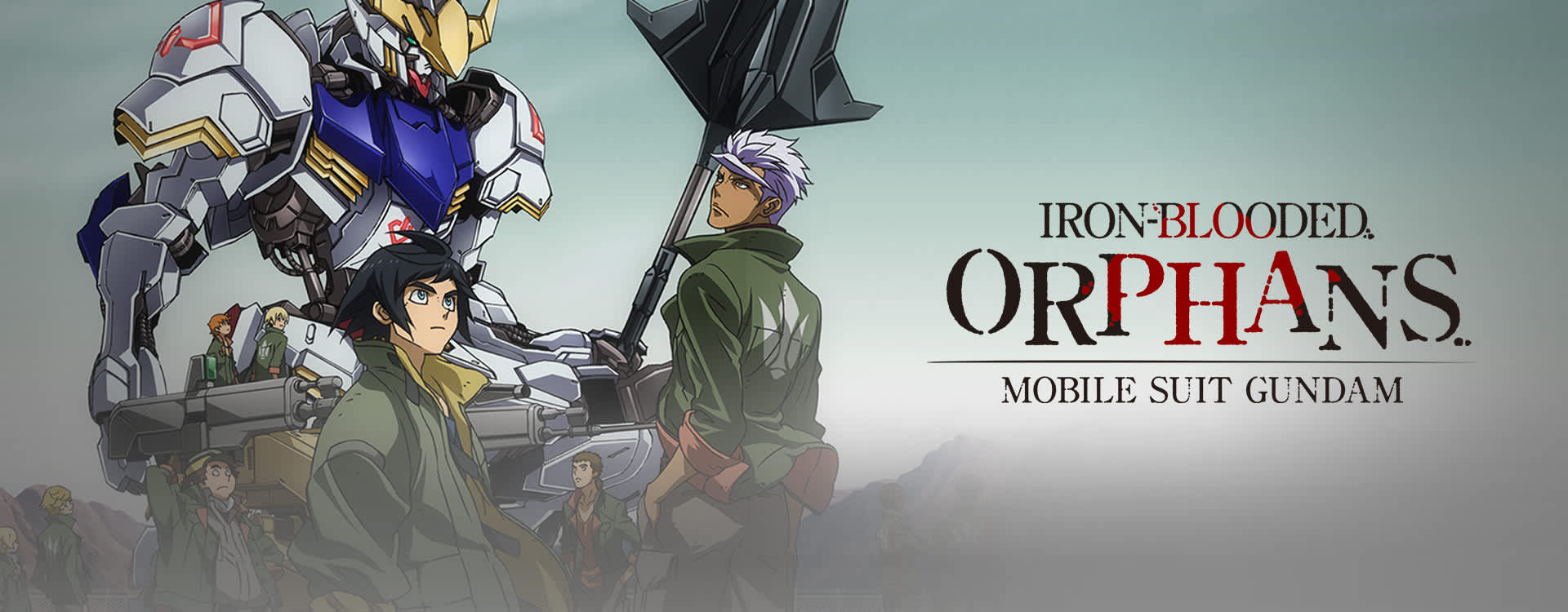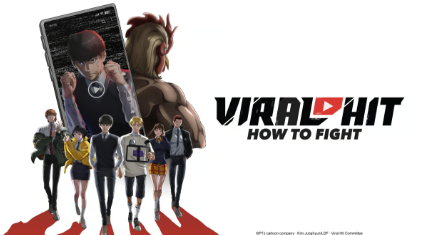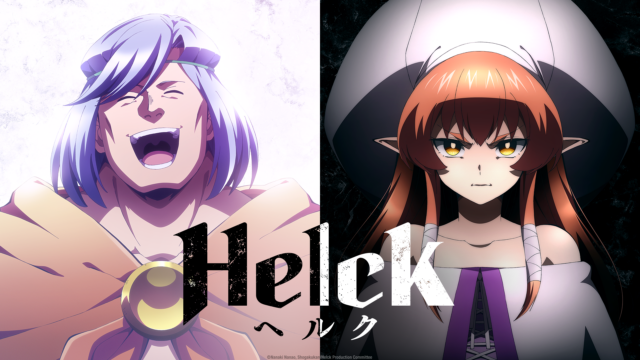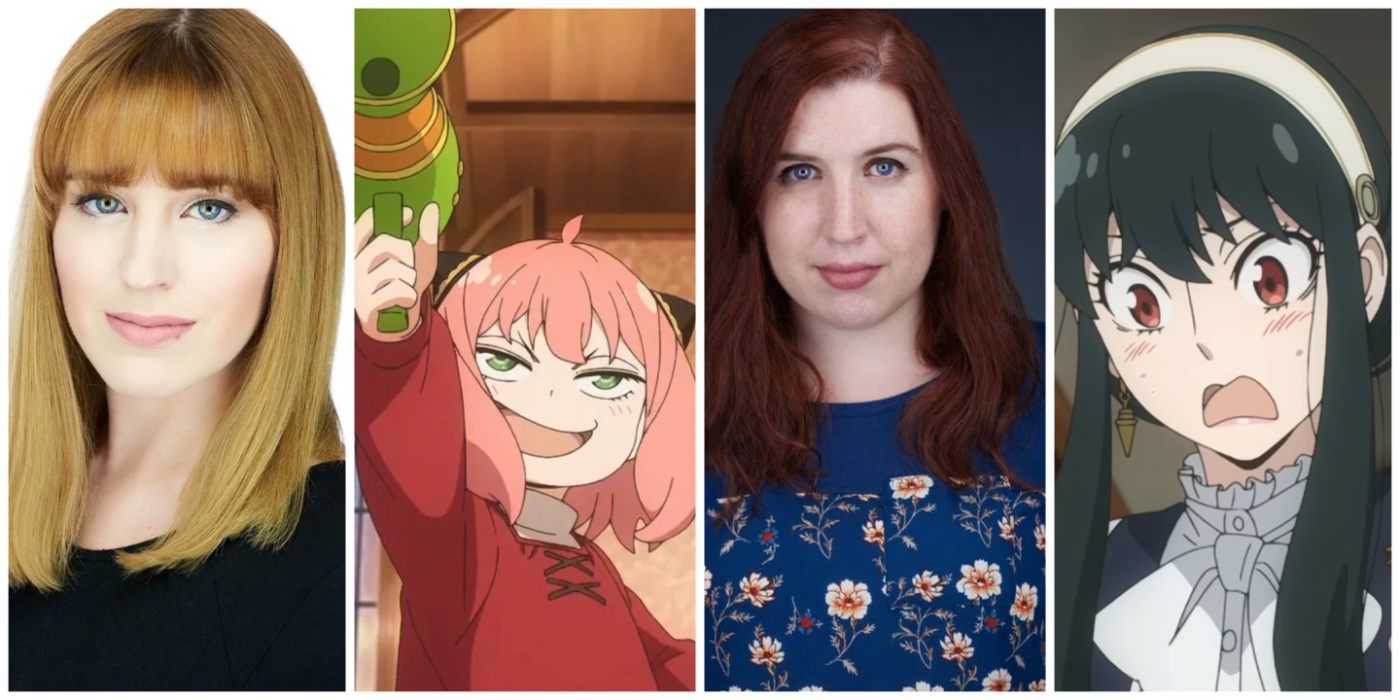English Dub Series Review: Mobile Suit Gundam Iron-Blooded Orphans
Raise your flags at half-mast for Tekkadan.
Another timeline in the mega-franchise of Mobile Suit Gundam comes to an end, and not in the way most might have thought. Compared to its contemporaries, the choices made for the final fates of these characters was pretty outside of the typical Gundam show most had become used to, though it might be more similar to others than some might think. Wholesale slaughters of the ostensible heroes have been seen in OVAs like the lauded 0080: War in the Pocket, and in the noted Char’s Counterattack feature film, though not much in full series like this. In a lot of ways, IBO was the mold breaker, but before we can observe that, we should look back on how it handled itself as its own show.
The theme of family and its fluidity is present from the start. Tekkadan forms as a makeshift family long before they learn the meaning of the word, and take examples from mentors like the Turbines in understanding that concept. Blood relations also play a major factor, though more often than not to highlight that family one chooses is more important but leaves fair middle ground like Biscuit’s sisters compared to his betrayal by his brother. Non-traditional family lines are drawn and redrawn on both sides, and well-intended attempts to separate loved ones from families to spare their lives underscore a major point: your real family will stick by you no matter what, until the end.
Equally observed and discussed is the concept of humanity and personhood, specifically what constitutes a human being. Human Debris and those who are given augmentations like the Alaya-Vijnana are initially seen as second-class citizens at best and mere tools at worst, but several characters test these ideas in several ways. Some elect to forsake their physical bodies while preserving their ideals and goals. Others maintain their human parts but arguably lose their souls or identities. And many others do all, none, or something in between, including our main Gundam pilot.
Mikazuki is rather unique when put in a line up with his main pilot peers. Unlike idealistic or opinionated upstarts like Amuro (0079/Zeta) or Kira (Seed/Seed Destiny), or even his fellow stoics in Heero (Wing) and Setsuna (00), Mikazuki spends most of the series were almost entirely at the beck and call of his best friend and leader, Orga. That’s not to say he doesn’t have his own personal journey he goes on, attracting a surprisingly wholesome love triangle and slowly sacrificing his body to remain a useful tool, nor are his objectives solely on Orga’s orders. He wonders how he’ll fit in a world without fighting, but he wants to protect those he cares about so they don’t have to. His cold fierceness in battle and nonchalant ability to kill on command has given many of his opponent’s reason to call demonic or inhuman, and he may have fit better in an antagonist role, but he’s far from being a soulless monster. He has several moments of showing loyalty, compassion, and defensiveness for his friends and companions in his own unique way, allowing him to be an exception to the Gundam protagonist formula, especially in his sacrifice at the end.
Orga is someone who could arguably be considered more of a main character than Mika, considering his ambitions and leadership drive much more of the plot. The comparisons between his relationship with Mika and Kamina and Simon from Gurren Lagann are notable, but almost a dark mirror of that, as if we’re seeing what would happen if Kamina had lived and Simon never got to take the leadership role. Furthermore, as much as their friendship and reliance on each other acts as one of the main strengths of Tekkadan, it borders on codependency, and could arguably be the cause of their group’s eventual demise. It could even be said that if Biscuit was the angel on Orga’s shoulder, Mika could be considered the devil (fitting since the Gundams in this series are named after demons). Orga also has his own arc, learning to guide his foster brothers to a better life and soon found himself letting his emotions leading to biting off more than he can chew, but his goals are admirable, and his death tragically short of his objective.
Tekkadan has many notable standouts, like Akihiro, Shino, Eugene, Chad, and so on, but the group also functions as a character itself. Cobbled together from child workers who take a chance on an honest living, they each share the quality of disenfranchised individuals who hope to become viewed as free individuals with easy lives that they live for their own. When there’s a loss, it’s a tragedy, but they recover, stand back up, and recommit with increasing ferocity. Even in the group’s final official moments, they follow Orga’s orders to the end, even when that only requires staying alive. They may have been doomed from the start as an organization and might have even become corrupted by their own feelings, but they lived to the fullest.
Kudelia has more focus in the first half of the series than the second, as the main instigator of the events that lead to Tekkadan’s creation and the reason they become so embroiled in political revolutions, but she retains her ideals even as she’s constantly tested because of her age and gender. She naively chooses the orphans to make herself feel more connected to a struggle compared to her affluent upbringing, even becoming a pawn in other political manipulations, but losing her caretaker Fumitan allows her to center herself and find her true power. She takes a backseat in a lot of the proceeding events after the halfway point, mostly doing support work and settling her feelings for Mikazuki alongside her growing friendship with Atra, but she ends the story with much more power than when she started, allowing her to finally cause hard and lasting change for those she sought to help.
McGillis oddly supplants Kudelia as the tritagonist of the show in the second season, having acted as a Littlefinger-esque trickster in the background of events. After becoming more acquainted with Tekkadan, he becomes an ever-growing ally, which is not at all how I expected their relationship to go at the beginning. I kept waiting for him to pull one over on them toward the end, but they ultimately end on relatively good terms. His background and objectives are more sympathetic than simply power for power’s sake, being connected to his powerless childhood making him into a vindictive schemer in adulthood. His goals of breaking down the corrupt and archaic rules of status and tradition in Gjallerhorn are understandable and even admirable, but like Tekkadan (and possibly because of them, given his reaction to their defeat of the Mobile Armor), he is done in by his own emotions and childishness, shown when he relies solely on the symbol of Bael for influence and expects nothing else but total compliance by the rest of the organization. He falls victim to the very things he despised about the group, making his death and the fact his goals were accomplished by his nemesis, Rustal Elion, all the more ironic. The fact that Bael is retrieved and preserved by the end might be a sign that he was at least right in his ideas, even if the ways he went about it only served in his own destruction. Had he let go of his anger and hate, he might have been able to bring in this change with Rustal’s help, but his revolution may have been exactly what was needed, if not in the way he predicted.
Rustal’s kind of a hard nut to crack, when it comes to analysis, even considering his victory by the end, but it becomes clear that he and many of his underlings and peers are extensions of aspects of Gjallerhorn. If Iok Kujan is the worst parts of the organization (cruel, cowardly, and dependent on the past for motivation) and Gaelio is the youth that is willing to learn from the mistakes of the past system, Rustal might serve as the bridge between them, as he manages to use the worst tricks and manipulations of the past, including controlling the media to make scapegoats and using illegal lethal weapons, in order to justify public approval of major reformation, most of which include things those who he fought and killed were striving for. Unfortunately, Rustal suffers from serving more as a metaphorical menace than being an interesting character in his own right, but if he has one weakness, it’s his fondness for Julieta. This isn’t fully exploited enough to make a mark, but it’s notable that he ends up entrusting the future of the world he makes to her by the end.
The end itself is pretty bittersweet, ending in the deaths of almost all of the Gundam pilots, including most of Tekkadan’s A-Team. Apparently, the death toll was originally suggested to be much higher and bleaker, which might’ve been interestingly edgy upon first viewing but soured upon further analysis. As it is, it strikes an even balance between the sacrifices made and their importance, while also turning many conventions of the franchise on their heads, leaving many different ways to view the series as a whole. Were Tekkadan the villains in the end? Were they victims of a cruel society that consumes us all? To what measure does a societal lie help or hurt us? Iron-Blooded Orphans leaves us with many questions with very complicated answers if any at all, and that might just be the best thing you want out of a story: the ability to stick with you.
Obviously, this isn’t the last we’ll see of the Gundam franchise. As of this writing, Gundam Build Divers is airing in the current anime season, though more in the spirit of previous shows that focus more on the model building than the politics, which is where shows like IBO and much of the Universal Century shows shined. The harder material will still be coming from future installments from that universe, but whether it’s a sequel to this, or another new timeline entirely, I hope Gundam maintains its Real Robot roots, giving us questions to ask in dividing times, and standing together with the family we find along the way.

























I'm hired!